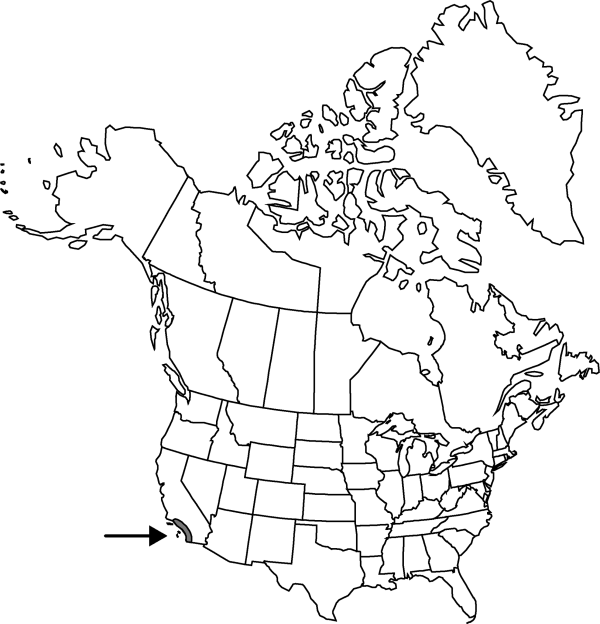Difference between revisions of "Suaeda esteroa"
Madroño 30: 182, fig. 1. 1983.
FNA>Volume Importer |
imported>Volume Importer |
||
| (2 intermediate revisions by 2 users not shown) | |||
| Line 8: | Line 8: | ||
}} | }} | ||
|common_names=Estuary sea-blite | |common_names=Estuary sea-blite | ||
| + | |special_status={{Treatment/ID/Special_status | ||
| + | |code=E | ||
| + | |label=Endemic | ||
| + | }} | ||
|basionyms= | |basionyms= | ||
|synonyms= | |synonyms= | ||
| Line 45: | Line 49: | ||
|publication title=Madroño | |publication title=Madroño | ||
|publication year=1983 | |publication year=1983 | ||
| − | |special status= | + | |special status=Endemic |
| − | |source xml=https:// | + | |source xml=https://bitbucket.org/aafc-mbb/fna-data-curation/src/2e0870ddd59836b60bcf96646a41e87ea5a5943a/coarse_grained_fna_xml/V4/V4_779.xml |
|genus=Suaeda | |genus=Suaeda | ||
|section=Suaeda sect. Brezia | |section=Suaeda sect. Brezia | ||
Latest revision as of 22:00, 5 November 2020
Herbs or subshrubs, annual or usually perennial, yellow-green, green, or occasionally reddish, 1–6 dm, glaucous. Stems decumbent to erect, straw colored, branched, often woody at base, often with exfoliations; branches usually ascending. Leaves ascending, imbricate; blade green or reddish, linear-lanceolate, adaxial surface flat, 10–60 × 0.5–2.5 mm, base not narrowed, apex acute; proximal leaves usually withered, persistent or breaking apart into fibers, straw colored. Glomes in dense, mostly (2–)5–20 cm compound spikes; (1–)3–5-flowered; bracts smaller than leaves, 5–20 mm, usually widest at base. Flowers bisexual; perianth zygomorphic or irregular (one segment usually larger), 1.5–3(–3.5) mm diam.; perianth segments abaxially rounded and keeled and distally hooded; stigmas (2–)3. Seeds dimorphic; lenticular, 1–1.3 mm diam., with seed coat black to reddish brown, obscurely reticulate, shiny; or flat, 1.2–2 mm, with seed coat brown, dull.
Phenology: Flowering late summer–fall.
Habitat: Coastal salt marshes
Elevation: 1-2 m
Distribution

Calif., Mexico (Baja California).
Discussion
Selected References
None.